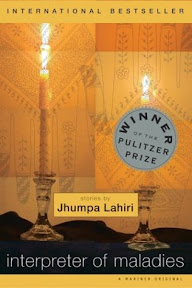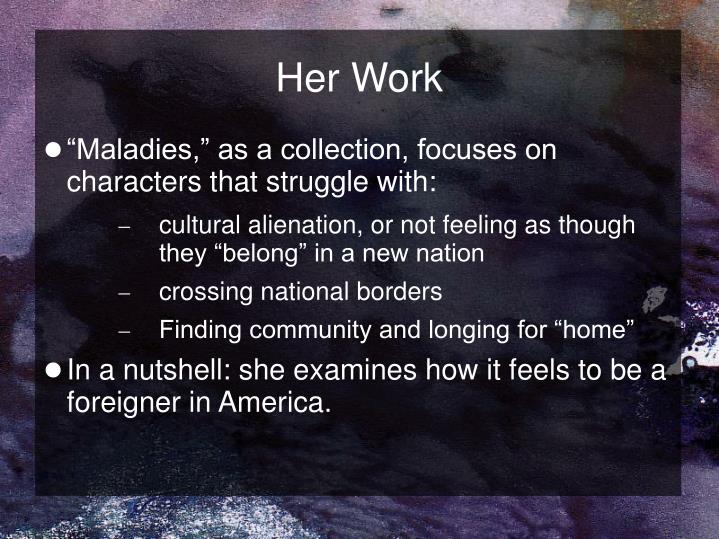



Men are, according to such guidelines, responsible for working and providing their families with a monitory income. According to Lahiri’s generalizations of Indian marital culture, women are solely responsible for cooking and doing household chores, as well as being completely domesticated with the arrival of the children. Lahiri’s married characters often deal with confusion of marriage roles in relation to cooking, working outside the home, and bearing children. Whereas in India, a strict set of guidelines dictates how husbands and wives act both publicly and privately, in America such guidelines are not as clear-cut and, often times, are thrown out altogether. Lahiri often toys with the reversal of the gender roles, especially as they relate to husband - and - wife roles within marriage. The following questions look at the ways in which Lahiri deals with the issue of Diaspora and its effects on identity and character. Thus, most of the characters in Interpreter of Maladies must cope with living in the Diaspora in some sense. Very few essential characters in the book live in their original homeland, and, if they do, their first generation of their family is born into a Western culture. No doubt, Indian writing from Raja Rao to Jhumpa Lahiri is long road - arduous, but exciting and exhilarating.Īlthough not all the stories in Interpreter of Maladies are set in America, all of them deal with the characters in Diaspora of one sort or another. In critical perspective it is regarded, as another milestone after Arundhati Roy’s The God of Small Things.

The nine stories in the collection constitute - the universe of nine planets. Jhumpa Lahiri with the publication of her debut collection of short stories Interpreter of Maladies, which won the prestigious Pulitzer Prize for fiction 2000, shot into prominence. Archana, Associate Professor, BBDGEI, Lucknow, U.P.


 0 kommentar(er)
0 kommentar(er)
